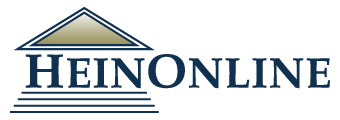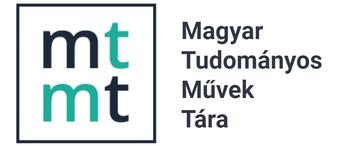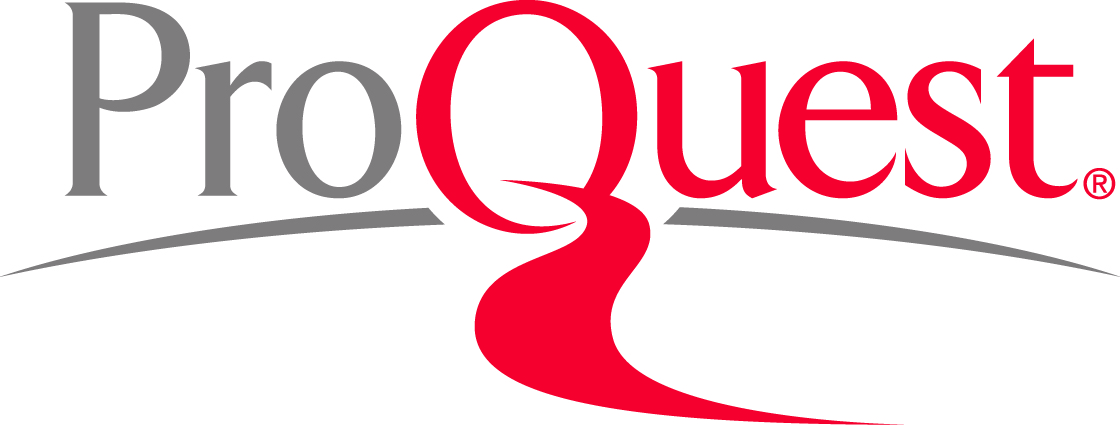Systematization and some current issues of water law and water regulation in the framework of the European Union
Abstract
The aim of this study is to show where and how water-related legal regulations appear in the legal system of the
European Union and what are the current issues that most affect the European Union's water legislation.
Although we strive for a holistic approach in the present study, however, because of the complex and difficult
nature of the issue, our attempt to present the above questions may only be subjective and partial. In the first half
of the study, we try to show what is meant by ʻwater lawʼ in the European Union. In the second, larger half of
the study, we list some of the water-related regulatory concepts and then try to show which parts of the European
Union legislation are covered by these regulatory concepts. As we will see, what the European Union today defines
as water law does not cover all essential regulatory concepts of water. In other words, important water-related
regulations (these are simply called regulatory concepts of water) are in many cases outside the European Union's
water law.
References
nemzetközi és nemzeti szinten, De Iurisprudentia et Iure Publico 5 (4), pp. 1–40.
2. Aylward B, Bartram J, Popp Ch & Vapnek J, ed., (2009) Law for water management: a
guide to concepts and effective approaches, FAO Legislative Study 101, FAO, Rome,
www.fao.org/docrep/012/i1284e/i1284e.pdf [03.06.2017]
3. Balatoni Kör (2016) Önálló jogalanyi státuszt a Balatonnak, 28 November 28,
http://www.hirbalaton.hu/balatoni-kor-onallo-jogalanyi-statuszt-a-balatonnak/
[06.08.2017]
4. Baranyai G (2016) Water disputes in the EU, presentation, in: Határon átnyúló
vízügyi konfliktusok megelőzése és kezelése Európában: rendelkezésünkre állnak-e hatékony
eszközök és mechanizmusok?, conference, Nemzeti Közszolgálati Egyetem, Budapest,
1 December 2016.
5. Baranyai G (2018) European water law and hydropolitics: an inquiry into the resilience of
transboundary water governance in the European Union, PhD Thesis (working document),
Pázmány Péter Catholic University, Budapest.
6. Bándi Gy (2011) Környezetjog, Szent István Társulat, Budapest.
7. Belényesi P (2013) A vízszolgáltatások hatékonyságának javítása a Vízkeretirányelv egyes
rendelkezései és a szennyező fizet elvének tükrében, PhD Thesis, University of Debrecen,
Debrecen.
8. Bell S & McGillivray D (2008) Environmental law, Oxford University Press, New
York.
9. Bujdos Á (2017) The analysis of the rules on transboundary water pollution, PhD Thesis,
University of Debrecen, Debrecen.
10. Csák Cs (2008) Környezetjog, Novotni Kiadó, Budapest.
11. Farkas Csamangó E (2017) Környezetjogi szabályozások, SzTE ÁJK – ÜJI, Szeged.
12. Fodor L (2014) Környezetjog, Debreceni Egyetemi Kiadó, Debrecen.
13. Fórika L (2017) Az ivóvízhez való jog biztosítása az ombudsmani vizsgálatok
tükrében, in: Fodor L & Bányai O, ed., A települési önkormányzatok szerepe a környezeti
politika és jog alakításában, Debreceni Egyetemi Kiadó, Debrecen, pp. 145–156,
DOI: 10.5484/fodor_banyai_telepulesi_onkormanyzatok
14. Gordon-Walker S & Marr S (2002) Study on the application of the competition rules to the
water sector in the European Community, Study for European Commission Competition
Directorate General, WRc & ECOLOGIC, December 2002.
15. Hall D & Lobina E (2006) Water as a public service, Ferney-Voltaire: Public Services
International, 2007-01-W-waaps, 15 December 2006.
16. Hall D & Lobina E (2008) The illusions of competition in the water sector, 2008-09-WUKcompet,
PSIRU, September 2008.
17. Hall D & Thomas S (2006) GATS and the electricity and water sectors, 2006-03-WEGATS,
PSIRU, 3 March 2006, www.psiru.org/reports/2006-03-WE-GATS.doc
[08.07.2011]
18. Hegedűs J & Tönkő A (2014) A víz- és csatornaszolgáltatás alternatív strukturális
modelljei és ezek változási irányai, in: Horváth M. T, ed., Külön utak, Dialóg
Campus, Budapest-Pécs, pp. 11–31.
19. Horváth M T (1997a) Közszolgáltatás, magánszerveződés – privatizáció a
településeken, Magyar Közigazgatás 47 (4), pp. 193–201.
20. Horváth M T (1997b) Közszolgáltatás, magánszerveződés – privatizáció a
településeken, Magyar Közigazgatás 47 (5), pp. 257–267.
21. Horváth M T, Bartha I & Szilágyi J E (2018) Hó és sár: a víz mint érték vagy
érdek. Képzelt beszélgetés a víz jogalanyisága felvetésének ürügyén, Közjogi Szemle
11 (3), pp. 14–19.
22. Horváth M T & Péteri G (2013) Nem folyik az többé vissza – Az állam szerepének
átalakulása a víziközmű-szolgáltatásban, in: Kiss F L & Nagy Cs I & Valentiny P,
ed., Verseny és szabályozás – 2012, MTA KRTK Közgazdaság-tudományi Intézet,
Budapest, pp. 177–200.
23. Jakab N & Mélypataki G (2019) The right to water as a social fundamental right,
Journal of Agricultural and Environmental Law 14 (26), pp. 7–21, doi:
10.21029/JAEL.2019.26.7
24. Kardos G (2004) A vízhez való jog, Acta Humana 15 (1), pp. 93–98.
25. Kecskés G (2009) A vízhez való jog nemzetközi jogi koncepciója, Állam- és
Jogtudomány 50 (4), pp. 569–598.
26. Kecskés G (2013) Water protection via the implementation of EU directives, in:
Szabó M & Greksza V, ed., Right to water and the proetction of fundamental rights in
Hungary, Pécsi Egyetem, Pécs, pp. 212–224.
27. Krämer L, ed. (2012) EU Environmental Law, Sweet & Maxwell – Thomson
Reuters, London.
28. Macrory R (1993) European Community Water Law, Ecology Law Quarterly 20 (1),
pp. 119–139.
29. Pump Judit (2011) A jog hatása a fenntartható közszolgáltatásra a hulladékgazdálkodás és
a vízgazdálkodás területén, PhD Thesis (working document), Eötvös Loránd
Tudományegyetem, Budapest.
30. Raisz Anikó (2012) A vízhez való jog egyes aktuális kérdéseiről, in: Csák Cs, ed.,
Jogtudományi tanulmányok a fenntartható természeti erőforrások témakörében, Miskolci
Egyetem, Miskolc, pp. 151–159.
31. Szabó M & Greksza V, ed. (2013) Right to Water and the Protection of Fundamental
Rights in Hungary, University of Pécs, Pécs.
32. Szappanyos M (2013) Víz és jog, Veszprémi Humán Tudományokért Alapítvány,
Veszprém.
33. Szilágyi J E (2012) A vizek védelmének jogi alapjai az EU vízvédelmi jogában,
Publicationes Universitatis Miskolcinensis Sectio Juridica et Politica 30 (2), pp. 577–599.
34. Szilágyi J E (2013) Vízjog, Miskolci Egyetem, Miskolc.
35. Szilágyi J E (2014a) A magyar víziközmű-szolgáltatások és a Víz-keretirányelv
költségmegtérülésének elve, Miskolci Jogi Szemle 9 (1), pp. 73–94.
36. Szilágyi J E (2014b) A magyar víziközmű-szolgáltatók integrációja jogi
nézőpontból, Pro Futuro 4 (1), pp. 144–162.
37. Szilágyi J E (2015) Az uniós Víz-keretirányelv költségmegtérülésének elve az
Európai Bíróság esetjogának tükrében, in: Szalma J, ed., A Magyar Tudomány Napja
Délvidéken 2014, VMTT, Újvidék, pp. 212–226.
38. Szilágyi J E (2016) Current challenges concerning the law of water services in
Hungary, Lex et Scientia 23 (1), pp. 70–82.
39. Szilágyi J E (2018a) A víz jogalanyisága új-zélandi példájának alkalmazhatósága a
Balaton és a magyar jog viszonyrendszerében, Pro Futuro 7 (2), pp. 9–23.
40. Szilágyi J E (2018b) Vízszemléletű kormányzás – vízpolitika – vízjog, Miskolci Egyetemi
Kiadó, Miskolc.
41. Thieffry P (-) General Framework of EU Water Law – The institutional nature of water
legislation, https://www.eracomm.
eu/EU_water_law/stand_alone/part_2/part_2_1_institutional_nature.html
[03.08.2017]
42. WRC PLC (2015) Assessment of Member States’ progress in the implementation of Programmes
of Measures during the first planning cycle of the Water Framework Directive – Hungary,
2015. március, http://ec.europa.eu/environment/water/waterframework/
pdf/4th_report/country/HU.pdf [13.07.2017]
43. WTO (2005) GATS – Fact and fiction, WTO, Genf,
wto.org/english/tratop_e/serv_e/gatsfacts1004_e.pdf [16.07.2011]
44. WWAP (2003) Water for People. Water for Life, The United Nations World Water
Development Report, UNESCO – Berghahn Books, [n.p.].
45. WWAP (2009) Water in a changing World, The United Nations World Water
Development Report 3, UNESCO – Earthscan, Paris – London.
46. WWAP (2012) Managing Water under Uncertainty and Risk (Volume I), Knowledge Base
(Volume II) and Facing the Challenges (Volume III), The United Nations World
Water Development Report 4, UNESCO, Paris.












